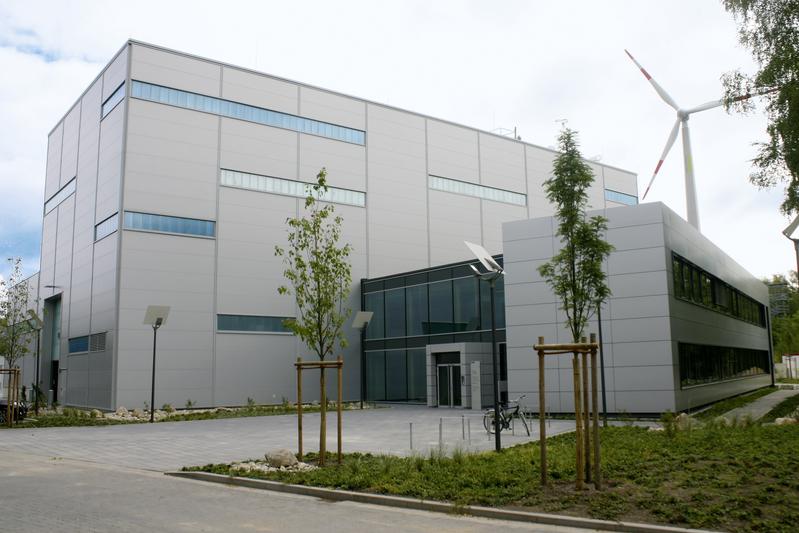
Test Centre for Support Structures: Masts and Foundations Tested

The Test Center Support Structures in Hanover.
© Hermann Kolbeck Fotografie, Hannover
Test Centre for Support Structures tests masts and foundations
The new centre has two large test rigs: the foundation test pit and the clamping field. In the 10-metre-deep pit filled with sand, large models of the support and foundation structures for offshore foundations can be mechanically loaded and investigated. Components and models are clamped in the clamping field.
Tensile, shear and torsional forces act on the object from different directions. The data obtained provides information on the extent and course of the material fatigue. In addition there is also a climate chamber and several specialist laboratories for conducting detailed analyses of concrete or the breakpoints of components that have failed during experiments.
Leibniz Universität Hannover operates the Hanover Test Centre for Support Structures together with the Fraunhofer Institute for Wind Energy and Energy System Technology, IWES, as its cooperation partner. In addition to this centre, the German Federal Ministry for Economic Affairs and Energy has spent a total of almost 50 million euros on further facilities for testing wind turbine nacelles and rotor blades as part of its energy research programme.
The BINE-Projektinfo brochure “Testing towers and foundations” (05/2015) follow this link:
http://www.bine.info/en/press/press-releases/archive-press-releases/pressemittei…
Uwe Milles
presse(at)bine.info
About BINE Information Service
Energy research for practical applications
The BINE Information Service reports on energy research topics, such as new materials, systems and components, as well as innovative concepts and methods. The knowledge gained is incorporated into the implementation of new technologies in practice, because first-rate information provides a basis for pioneering decisions, whether in the planning of energy-optimised buildings, increasing the efficiency of industrial processes, or integrating renewable energy sources into existing systems.
About FIZ Karlsruhe
FIZ Karlsruhe – Leibniz Institute for Information Infrastructure is a not-for-profit organization with the public mission to make sci-tech information from all over the world publicly available and to provide related services in order to support the national and international transfer of knowledge and the promotion of innovation.
Our business areas:
• STN International – the world’s leading online service for research and patent information in science and technology
• KnowEsis – innovative eScience solutions to support the process of research in all its stages, and throughout all scientific disciplines
• Databases and Information Services – Databases and science portals in mathematics, computer science, crystallography, chemistry, and energy technology
FIZ Karlsruhe is a member of the Leibniz Association (WGL) which consists of 87 German research and infrastructure institutions.
http://www.bine.info/en – BINE-Informationsdienst












